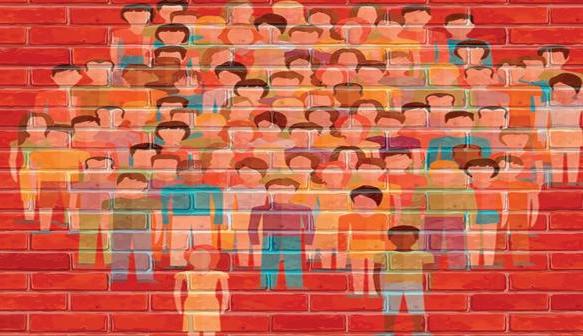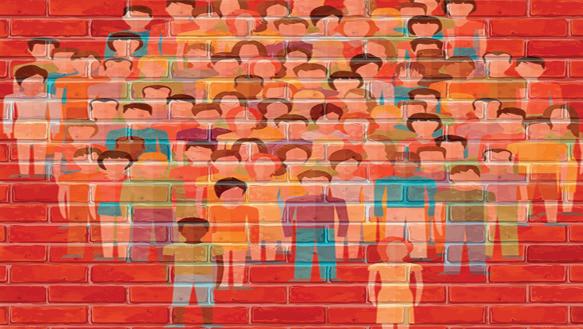
2 minute read
ANOTHER BRICK IN THE WALL

Another Brick in the Wall ANDY BANKS | Youth Consultant, SUNZ
Advertisement
New Zealand suicide statistics continue to be amongst the worst in the developed world, and have only increased in the wake of a continuing global pandemic as people grapple with uncertainty, a loss of hope and an unknown future. A quarter of New Zealanders currently have poor levels of mental and emotional wellbeing according to a February 2021 study commissioned by the Mental Health Foundation1. Over the last few years, in response to the increasing crisis in mental health in our communities and young people, Scripture Union NZ has developed the Āpōpō programme as a cooperative approach for communities responding to mental health and suicide. Such programmes are often said to be an ambulance at the bottom of the cliff when what is needed is a fence at the top. The Āpōpō programme emphasises that we don’t even want to be just a fence at the top—we want to move the fence back as far as we can and actually turn it into a massive wall. A wall that is made up of people. Āpōpō pursues the idea that it will take a village—not only professionals —to respond to the challenge of mental health and suicide. We can all be part of the solution and support each other’s emotional health and well-being. Each one of us another brick in the wall. In the faith-based version of Āpōpō we anchor the teaching around three key scriptures. One is the story of Paul and Silas in prison from Acts chapter 16. An earthquake shook the foundations of the prison, and immediately all the prison doors opened and everyone’s chains were unfastened. When the jailer woke up and saw the prison doors were open, he drew his sword to kill himself, supposing that the prisoners had escaped. However, Paul cries out ‘Do not harm yourself, for we are all here.’ Two factors often contribute to people considering suicide: loss of hope and loss of meaningful social connection. If we look closely at Acts 16, we see that Paul offered HOPE in telling the jailer not to kill himself. Paul’s voice was hope to the jailer that the prisoners hadn’t left. The jailer had thought killing himself was the only option, but now he knew that was not the case. Paul then offered SOCIAL CONNECTION by further responding ‘We are all here’. Buried in those verses are both hope and social connection. Buried in those two verses is the wall we want to build. A wall of people, a village to respond to the challenge of mental health and suicide. A village that we can all be part of. A wall that can help us support each other’s emotional health and well-being. We have to work together get to a place where we can put aside our fears to talk about mental health and suicide. A place where every single one of us is another brick in the wall.
1 Mental Health Foundation, 25% of New Zealanders have poor mental wellbeing, new study shows, accessed March 19, 2021 from https://mentalhealth.org.nz/news/post/25-of-new-zealanders-have-poor-mental-wellbeing-newstudy-shows










